May 2022
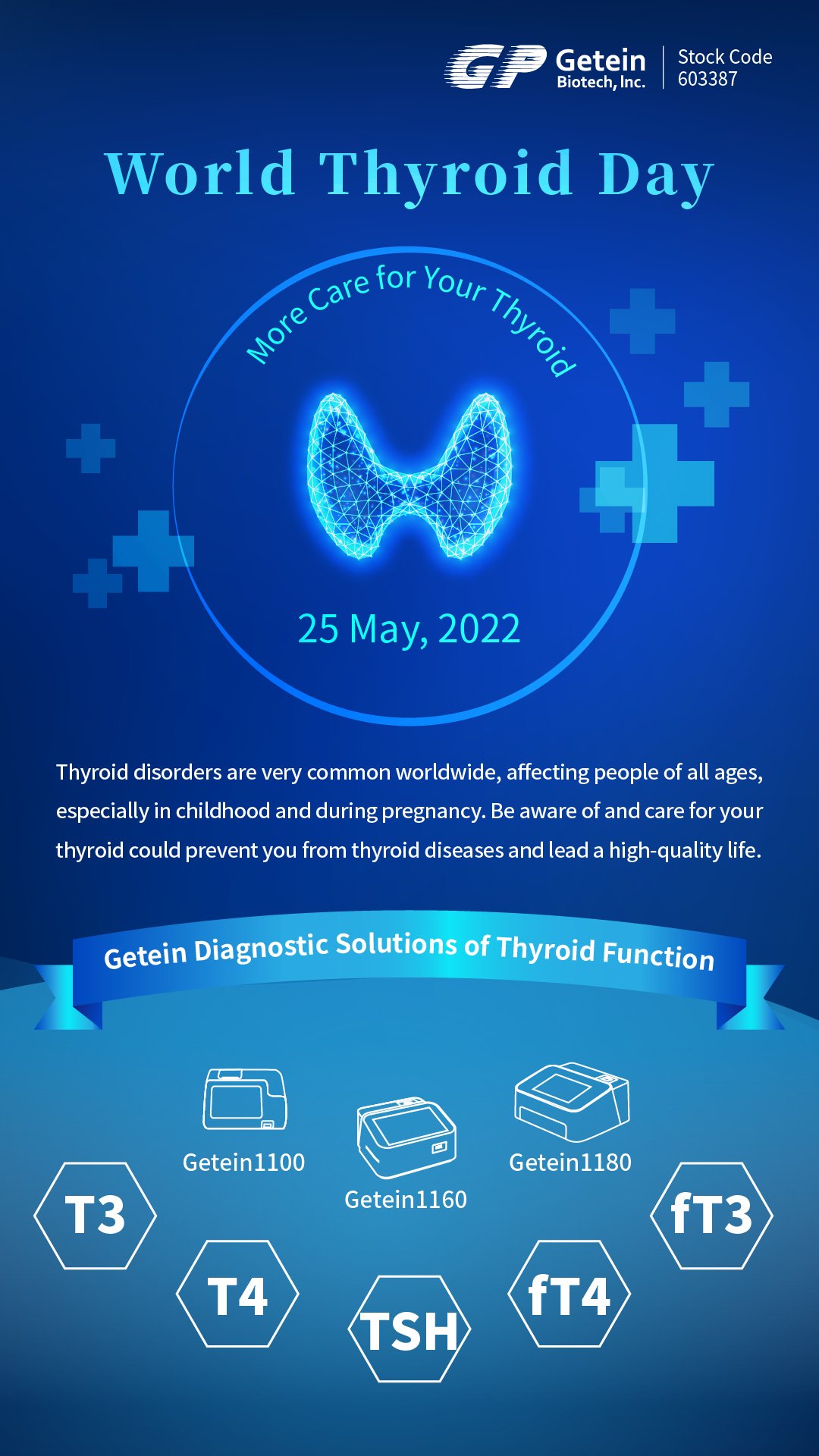
1 in 10 people worldwide will suffer with some forms of thyroid disorders. Statistics show that thyroid disorders are 5 to 10 times more common in women than men.
World Thyroid Day (WTD), May 25th, is dedicated to thyroid patients and to all who are committed to the study and treatment of thyroid diseases worldwide. This is a day that provides the public with information about the diagnosis and treatment of thyroid diseases, as well as prevention through adequate iodine nutrition.
Thyroid Disorders
The thyroid gland produces hormones that influence every cell, tissue, and organ in the body. Thyroid hormones regulate the body’s metabolism—the rate at which the body produces energy from nutrients and oxygen—and affects critical body functions, such as energy level and heart rate.
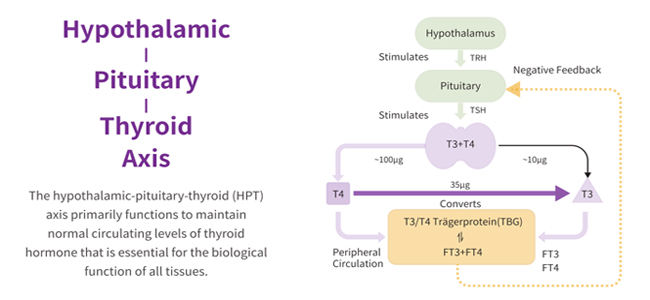

Hypothyroidism (thyroid gland does not produce enough thyroid hormone) and Hyperthyroidism (the thyroid gland produces too much thyroid hormone) are two common conditions with potentially devastating health consequences that affect all populations worldwide. Iodine nutrition is an essential determinant of thyroid disease risk since it must be ingested through the diet. However, other factors, such as ageing, smoking status, genetic susceptibility, ethnicity, and endocrine disruptors, also influence thyroid disease epidemiology.
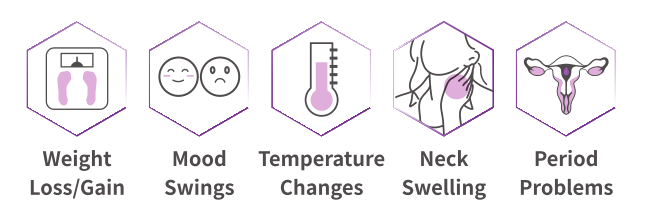

Signs and Symptoms of Thyroid Disorders
Pregnancy and Thyroid Health
1. The interaction between the thyroid function of the mother and the baby
For the first 18-20 weeks of pregnancy, the baby is completely dependent on the mother for the production of thyroid hormone. By mid-pregnancy, the baby’s thyroid begins to produce thyroid hormone on its own. The baby, however, remains dependent on the mother for ingestion of adequate amounts of iodine, which is essential to produce the thyroid hormones. The World Health Organization recommends iodine intake of 250 micrograms/day during pregnancy to maintain adequate thyroid hormone production.
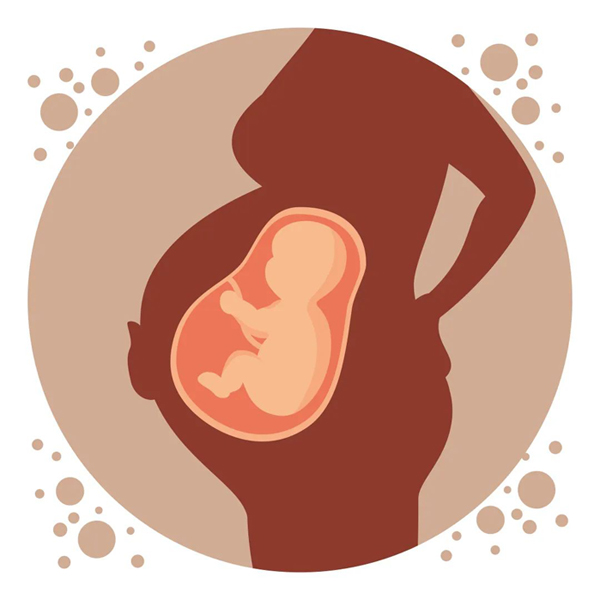
2. Hypothyroidism in Pregnancy
The most common cause of hypothyroidism is the autoimmune disorder known as Hashimoto’s thyroiditis. Untreated, or inadequately treated, hypothyroidism has increased risk of miscarriage, and has been associated with maternal anemia, myopathy (muscle pain, weakness), congestive heart failure, pre-eclampsia, placental abnormalities, and postpartum hemorrhage (bleeding). Thyroid hormone is also critical for brain development in the baby. Children born with congenital hypothyroidism (no thyroid function at birth) can have severe cognitive, neurological and developmental abnormalities if the condition is not recognized and treated promptly.

3. Hyperthyroidism in Pregnancy
The most common cause of hyperthyroidism in women of childbearing age is Graves’ disease, which occurs in 0.2% of pregnant patients. In addition to the classic symptoms associated with hyperthyroidism, inadequately treated maternal hyperthyroidism can result in early labor and a serious complication known as pre-eclampsia. Uncontrolled maternal hyperthyroidism has also been associated with fetal tachycardia (fast heart rate), small for gestational age babies, prematurity, stillbirths and congenital malformations (birth defects).
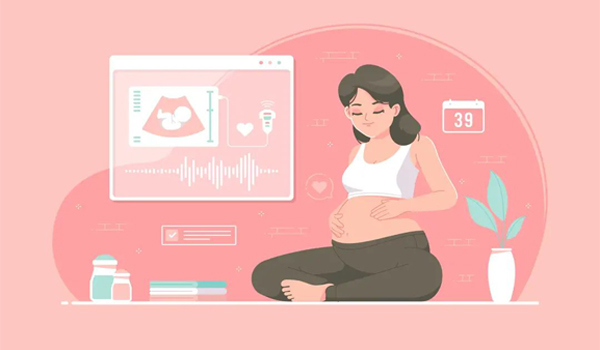
Therefore, women with established thyroid issues should have thyroid function tests as soon as pregnancy is confirmed.
Getein Reliable Tool for Diagnosis and Evaluation of Thyroid Function
As a trusted in vitro diagnostic national enterprise in China, Getein has always been at the forefront of developing comprehensive tests for thyroid function, which enables healthcare professionals to rapidly and effectively diagnose the optimal thyroid function in childhood, during pregnancy and throughout adult life, make informed treatment decisions and improve patient outcomes.
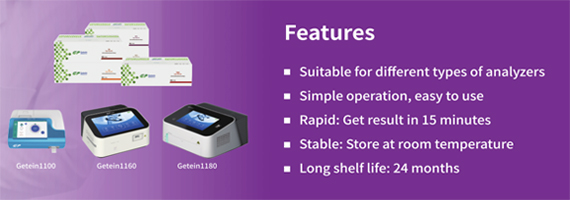
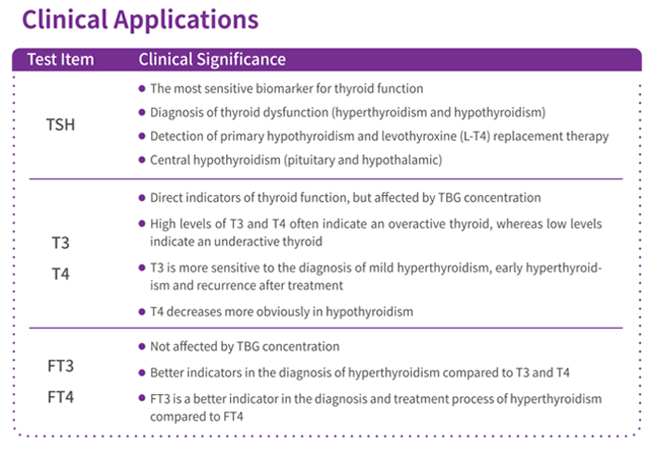

Getein will continuously pay close attention to global health issues and needs in real time, to help combat the pandemic, reduce the burden on healthcare systems and optimize patient management.
References:
Ponto KA, Kahaly GJ. Autoimmune thyrotoxicosis: diagnostic challenges. The American Journal of Medicine.
Lechan RM, Hollenberg A, Fekete C. Hypothalamic-pituitary-thyroid axis: organization, neural/endocrine control of TRH. In: Squire LR, ed. Encyclopedia of Neuroscience. Oxford, UK: Academic Press; 2009:75–87.
Thyroid Function Tests. American Thyroid Association®.
World Thyroid Day. The Australian Thyroid Foundation Ltd (ATF).

Open WeChat and Scan the QR Code. Stay Tuned with Us.